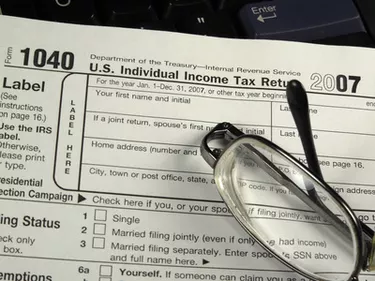
Although it is not usually popular with the American public, the concept of raising taxes does offer certain benefits. In some cases, additional tax dollars are needed to continue vital services or to balance budgets. So-called "sin taxes" such as those levied on tobacco products are generally more palatable to the voting public and can offer additional benefits such as improved health. Raising taxes on wealthier individuals can help those who are less fortunate.
More Revenue
Video of the Day
Raising taxes results in additional revenue to pay for public programs and services. Federal programs such as Medicare and Social Security are funded by tax dollars. Infrastructure such as state roads and the interstate highway system also require taxpayer funding. Real estate and property taxes are used to build and maintain schools.
Video of the Day
Health Benefits
Taxing potentially harmful items such as tobacco could discourage people from using them. According to a TobaccoFreeKids.org study, if every state and the District of Columbia added a $1-per-pack tax on cigarettes, 2.3 million kids would not take up smoking, 1.2 million adults would give up the habit and 1 million premature smoking-related deaths would be prevented.
Political Ramifications
TobaccoFreeKids.org also indicates that raising tobacco taxes could have positive impact for politicians. The website cites a 2010 national poll showing that 67 percent of Americans are in favor of a $1 tax increase per pack of cigarettes. Politicians who support an increase may find themselves in good favor with their constituents.
Balancing Budgets
A 2010 study by the Center on Budget and Policy Priorities shows that 48 states face budget shortfalls totaling $148 billion, the largest gap ever recorded. As many states struggle with budget shortfalls and high debt as of 2010, cutting programs and raising taxes may be the best, albeit painful, alternatives for balancing budgets.
Sharing the Wealth
In theory, higher taxes could result in wealthier people helping to support those who are less fortunate. By raising taxes on those who earn in excess of a certain income level, the additional revenue could be used to fund programs for the poor or disabled without significantly impacting the lifestyle of the rich. This concept avoids placing an additional tax burden on middle-income wage earners who may not be able to afford additional taxation.